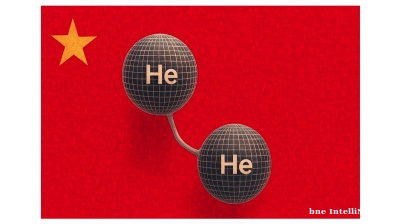India has pushed back against mounting criticism of its continued energy ties with Moscow, insisting that no country is obliged to buy refined Russian oil products exported from Indian refineries, the Anadolu Ajansi reports. The comments came from External Affairs Minister Subrahmanyam Jaishankar during an event in New Delhi, where he defended both the scale and the legitimacy of India’s crude imports from Russia.
The debate over India’s oil policy also coincided with an announcement from Washington, where US President Donald Trump named Sergio Gor as America’s next ambassador to New Delhi and special envoy for South and Central Asian Affairs. The appointment of a man deemed a “snake” by Tesla CEO Elon Musk, reflects the White House’s increasingly assertive stance towards India’s trade dealings with Russia.
Trade figures highlight the significance of these ties. Last year, bilateral commerce between India and Russia reached a record $68.7bn, underpinned by India’s purchase of some 88mn tonnes of Russian crude. These volumes have positioned New Delhi as one of Moscow’s most important energy customers, particularly since Western sanctions sharply curtailed European purchases following the invasion of Ukraine in 2022.
For Washington, however, the relationship remains problematic as The White House works to reduce Indian imports of Russian crude, describing the step as part of an effort to “deter Russia from pursuing” its war against Ukraine.
India, meanwhile, has signalled that while it is willing to continue negotiations with the United States on broader trade matters, certain principles are non-negotiable. Jaishankar emphasised that New Delhi’s priority remains protecting the interests of Indian farmers and small producers – red lines he said the government would not cross.
At the same time though, and despite the Indian stance, Russia’s crude exports to New Delhi have reportedly fallen sharply in recent weeks, reports The Moscow Times - in the process dealing a blow to one of Moscow’s most significant sources of energy revenue. Shipments of Urals crude have dropped to just 400,000 barrels per day (bpd) in August, a third of the levels seen earlier in the year, according to shipping data compiled by Kpler and as reported by Bloomberg.
India had been averaging imports of 1.18mn bpd in 2024, with volumes steady through June and July. The abrupt downturn thus reflects the combined effect of European Union sanctions and new American tariff measures, both of which have unsettled Indian refiners and complicated trade with Russia.
A key factor has been the European Union’s mid-July ban on fuels refined from Russian crude. Brussels also imposed restrictions on Nayara Energy, India’s third-largest refiner. Nayara is part-owned by Russian state oil company Rosneft and by United Capital Partners, an investment fund led by Ilya Shcherbovich. These curbs have made several trading partners reluctant to continue supplying the company’s refineries.
Nayara’s position has weakened dramatically as a result. It secured only four cargoes of Urals crude during August and, according to Bloomberg, no further deliveries are expected before month-end. That leaves its intake averaging just 94,000 bpd, far below the 366,000 bpd recorded in the third quarter of 2023 – a new low for the refiner.
The pressure has been intensified by Washington’s latest trade moves. President Donald Trump has tied higher duties directly to India’s continued energy dealings with Moscow, initially setting tariffs on Indian exports at 25% before doubling them. The new rates, due to take effect this week, represent a significant escalation in US-India trade tensions.
Tariffs aside, the developments underline how fragile Russia’s oil trade has become under the combined weight of Western sanctions and shifting demand in Asia. And, while China has stepped in at the margins, it has not compensated for the sharp fall in Indian purchases. For Moscow, the sudden decline from 1.18mn to 400,000 barrels a day in one of its key markets represents a serious setback.
News

US, Egypt, Qatar, and Turkey sign agreement to end Gaza war at Sharm El-Sheikh Summit
The US, Egypt, Qatar and Turkey signed a binding peace document on October 13, guaranteeing a ceasefire in the Gaza Strip, marking what President Trump called “perhaps the greatest achievement” of his presidency.

Pakistan, Afghanistan exchange fire along contested Durand Line
Pakistan has claimed responsibility for killing over 200 Taliban fighters in a series of precision strikes along the contested Durand Line.

Trump lands in Tel Aviv as Israeli hostages begin return home
Donald Trump arrives in Israel as the first Israeli hostages are released from Hamas' captivity.

Von der Leyen to confront Hungary’s EU Commissioner over reported espionage attempts in EU institutions
European Commission President Ursula von der Leyen intends to personally discuss espionage allegations with Hungarian Commissioner Oliver Várhelyi, Commission spokeswoman Paula Pinho said at a press briefing in Brussels on October 10.




